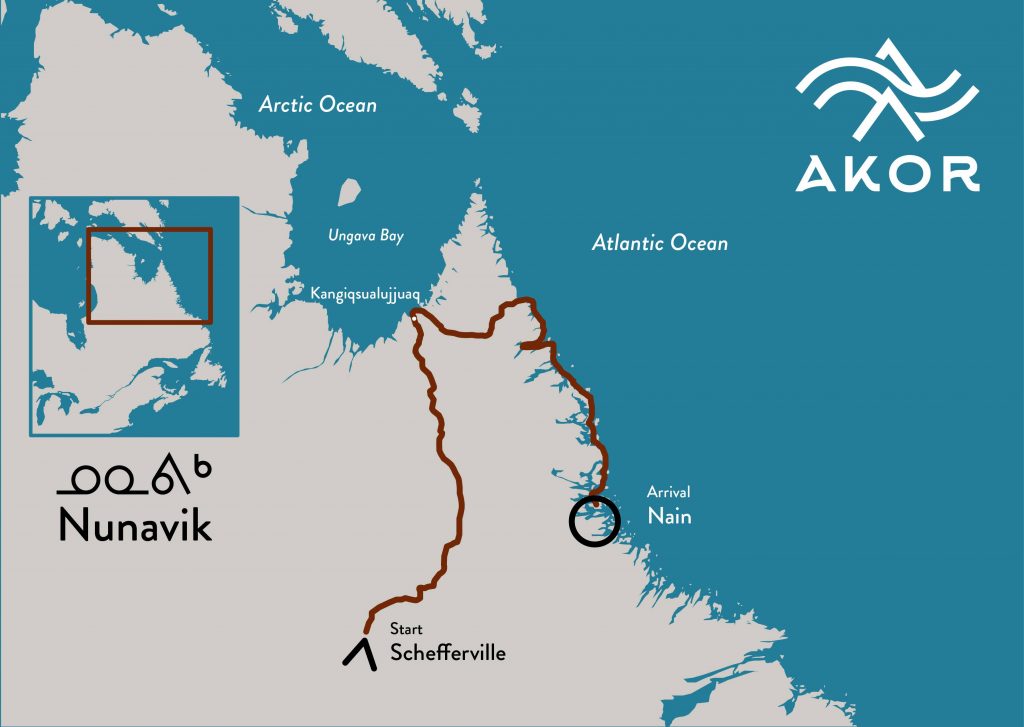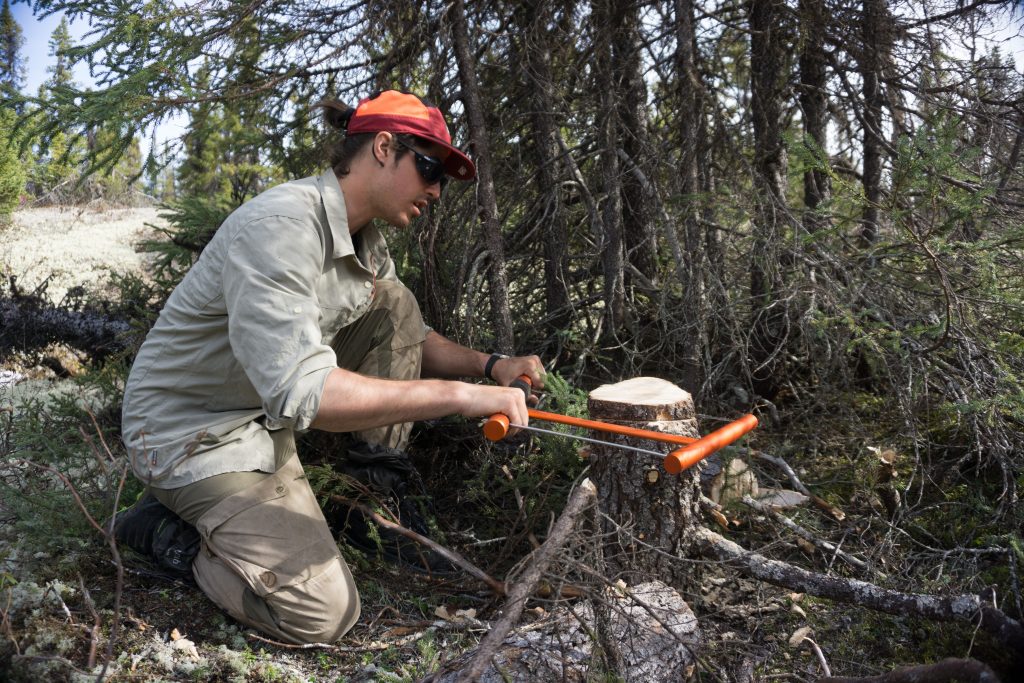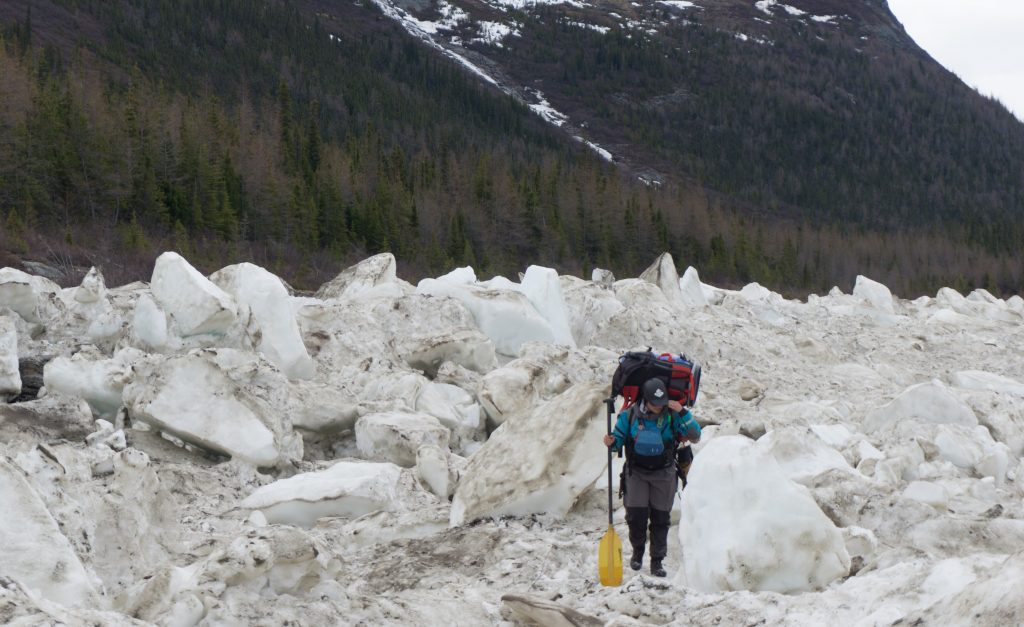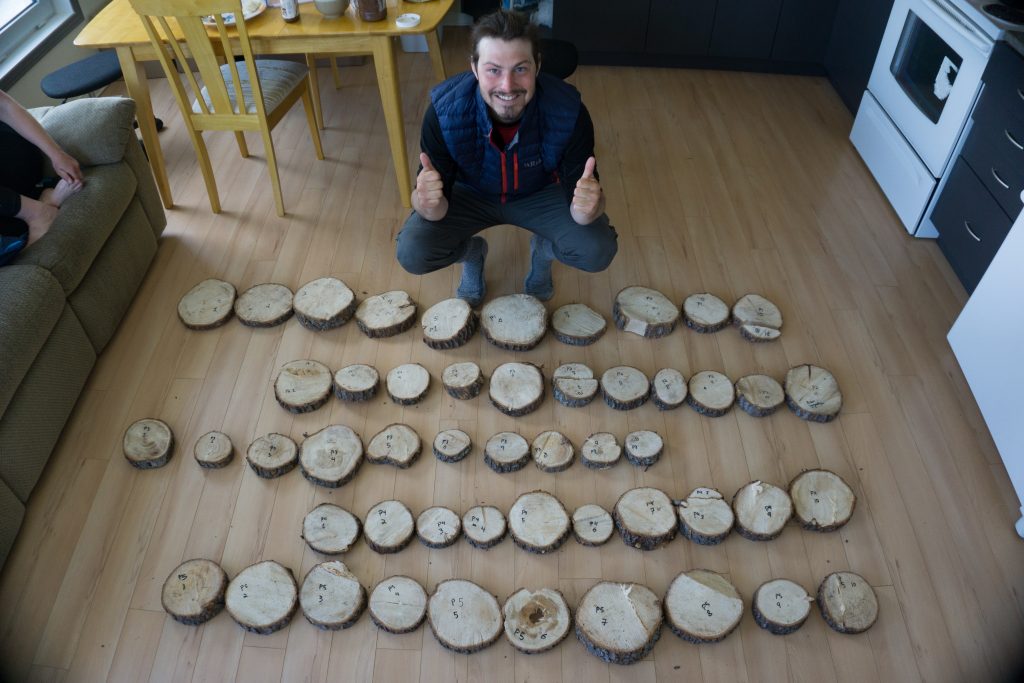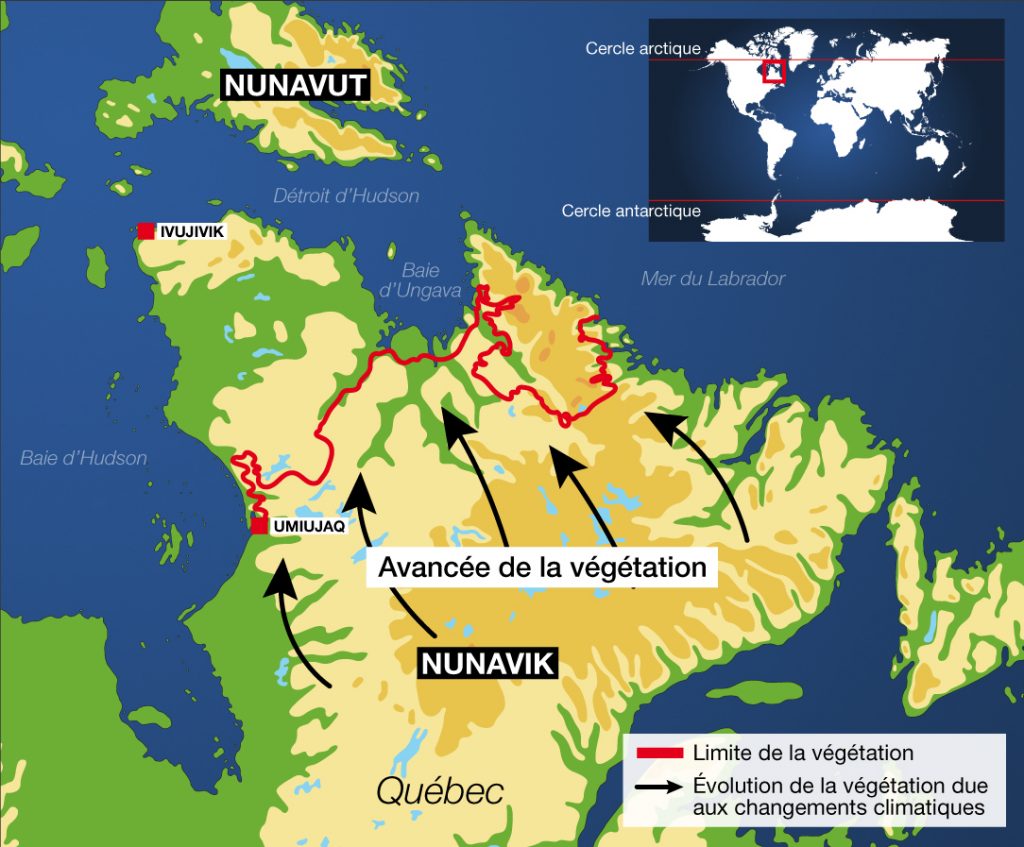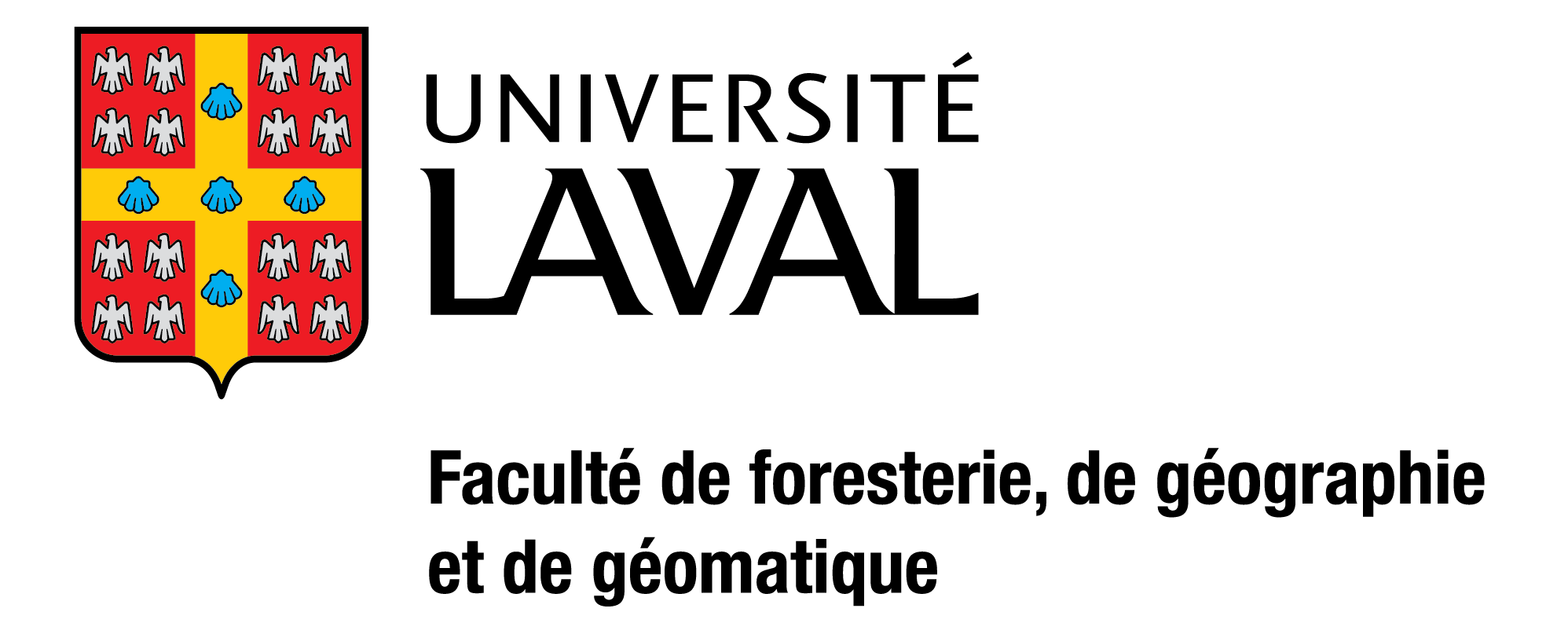Guillaume Moreau (PhD), a member of the crew, is a postdoctoral fellow in forest sciences at Laval University in Quebec City. Thanks to his research expertise, the AKOR team was able to give a scientific mission to his expedition to the Torngat Mountains in 2018 and collect several wood samples from boreal forest enclaves along the George and Koroc Rivers in Nunavik. In their canoes and on their backs, the AKOR members carried 70 wooden sticks over several hundred kilometres, in addition to their equipment and food.
As these forest ecosystems travelled by the AKOR team are located several hundred kilometres north of the northern boundary of the continuous boreal forest, the trees sampled during the expedition have experienced significant global warming in recent years.
Recently, the measurement of the growth rings of these conifers allowed a research team from Laval University to calculate a series of average annual growth rates that go back to the 1700s. This series of annual growth is now ready to be linked to the climate trends of the last three centuries.
Ultimately, this research aims to better understand the effect of climate change on the growth of northern forest ecosystems, but also to anticipate its effects on the southern boreal regions, one of the largest biomes on our precious planet.
In December 2020, Guillaume published his research findings in the international scientific journal Frontiers in Forests and Global Change. The scientific article “Impacts of Climatic Variation on the Growth of Black Spruce Across the Forest-Tundra Ecotone: Positive Effects of Warm Growing Seasons and Heat Waves Are Offset by Late Spring Frosts”, signed by Guillaume in collaboration with researchers from Université Laval, University of Toronto and Northern Arizona University, is freely available to all.
Here is a concrete example of how the world of adventure, in addition to inspiring personal achievement and helping people discover the beauty of the natural world, can also actively contribute to increasing scientific knowledge, ultimately leading to a better understanding and protection of exceptional ecosystems.
Our scientific partners for this research


